Table of Contents
Magnesium is the 4th most abundant mineral in your body. And critical for optimal cognitive health. It is a cofactor in more than 600 enzymatic reactions in your body.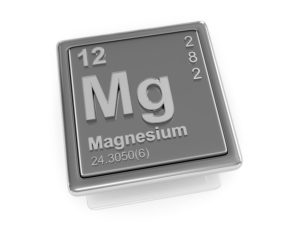
Magnesium assists in converting energy supplied by food to a useable form to produce adenosine triphosphate (ATP). Your primary cellular fuel source made within mitochondria. Magnesium is also needed for the synthesis of RNA and DNA.[i]
In your brain, magnesium regulates the activity in neuron ion channels. These channels are like tiny electrical switches. Governing the flow of neurotransmitters within neurons.
Magnesium also regulates brain synaptic plasticity. Which is critical for learning and memory.
Magnesium is critical to all of your body’s electrical and electrochemical activities. It’s involved in muscle contractions, heart rhythm, nerve function and brain cell activity.
Low blood magnesium levels show up as seizures, hypertension, stroke, migraines, and ADHD. It can also result in insulin resistance and type II diabetes.
Magnesium helps:
- Neuroplasticity: Magnesium controls the ion channels in brain cells. These tiny electrical switches control the transmission of electrical signals within and between neurons. Directly regulating learning and memory.
- Brain Energy: Magnesium is necessary for ATP synthesis. It’s needed for the Krebs cycle that turns sugar and fat from your diet into ATP. The primary fuel source produced within mitochondria in brain cells.
- Neuroprotectant: Low levels of magnesium in your diet correlate to a high incidence of neurodegenerative disease.
What is magnesium?
Magnesium plays an essential role in neuroplasticity and ATP production which is fundamental to learning, memory and cognitive function.[ii]
Magnesium is the 4th most abundant mineral in your body. But many of us in Western society are living with a magnesium deficiency. And most are unaware of this deficiency.[iii]
Dietary Magnesium Intake
Magnesium in our diet comes from foods like green leafy vegetables, beans, nuts, seeds, whole grains, poultry, beef, and salmon. Tap, mineral and bottled water also used to be good sources of magnesium. But varies by brand, source and if the magnesium has been filtered out during processing.
Needless to say, there used to be many magnesium rich foods that played an important role in your magnesium status and intake. But now most need to get magnesium chelate by using a supplement every day.
Magnesium is an essential part of neuroplasticity. Brain plasticity is the ability of your neurons to make cell-to-cell connections to form and regulate learning and memory.
With aging, or insufficient magnesium in our diet, we lose brain plasticity which results in a loss of cognitive function.[iv] This is why a young person, with an active, flexible brain easily catches new ideas. And simply thinks faster than a person whose brain has lost plasticity and is more fixed in their patterns.
Magnesium is also crucial to synthesizing ATP (adenosine triphosphate). The primary energy source produced within mitochondria in every one of your cells. Including the brain.
ATP must be bound to a magnesium ion (Mg-ATP) in order to be biologically active. This is critically important to how your brain’s mitochondria and cells use ATP. Including the synthesis of DNA and RNA.
To put this in perspective, over 300 enzymes and over 600 enzymatic reactions require the presence of magnesium ions for their catalytic action. Including all enzymes utilizing ATP.
Magnesium is even involved in how the other nootropics and dietary supplements in your stack are utilized by cells in your brain. The bottom-line is magnesium could be one of the most important additions to any nootropic stack.
How does Magnesium Work in the Brain?
Magnesium boosts brain health and function in several ways. But two in particular stand out.
- Magnesium is critical for neuroplasticity. Your brain is capable of forming new connections between neurons. When you take in new information, a signal is sent across the synaptic space between neurons. The ability of your brain to form these new connections is referred to as neuroplasticity.
This neuroplasticity is how learning and memories are formed. When these signaling pathways break down, memories fade. And you start to forget simple things like people’s names or phone numbers.
A simple example of how this works is reading this article. As you read this, your brain is forming and reforming new neural connections. When things aren’t optimal, you find yourself reading and re-reading sentences.
Magnesium is critical for maintaining this neuroplasticity. And your ability to learn and form memories. Magnesium ions control the ion channels, or electrical switches for this signaling.[v]
The more signals that these ion channels transmit, the stronger the connections between neurons. And the stronger the formation of the resulting memory.
Many studies demonstrate the detrimental impact of insufficient magnesium on optimal cognitive function.[vi]
- Magnesium is required for ATP synthesis. ATP (adenosine triphosphate) is the main energy source produced within mitochondria in brain cells. 20% of your body’s total ATP is located in your brain.
For ATP to be biologically active, it must be bound to a magnesium ion (Mg-ATP). [vii] About two thirds of your brain’s energy budget is used to help neurons send signals to neighboring neurons. The remaining third is used for housekeeping, or cellular maintenance.
Wei Chen, a radiologist at the University of Minnesota Medical School was co-author of a study on the brain’s use of ATP. The team used magnetic resonance spectroscopy (MRS) to measure the brain’s energy production during shifts in activity.
Their study on lab rats noted that when the rats were knocked out, they produced 50% fewer ATP molecules than when mildly anesthetized. Chen noted that the ATP produced when the brain is inactive goes to cell maintenance.[viii] This housekeeping is important for keeping the brain tissue alive.
The other two thirds are needed for other cellular processes including recharging neurons so they can fire. And create the electrical signals needed for neuron communication. Required for learning, memory, recall and cognition.
Without magnesium, your brain cannot produce ATP, and all brain function breaks down.
How Things Go Bad
As we get older, our brain chemistry and metabolism changes.
↓ ATP levels decline in mitochondria
↓ Cognition, learning, memory and recall decline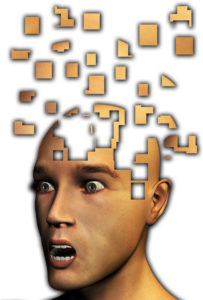
↓ Brain cell plasticity declines
↓ Free radicals damage brain cell mitochondria
All of these changes can happen at any age. And can be a result of not getting an adequate supply of magnesium.
So magnesium supplementation can help for age-related cognitive decline, as well as anyone who wants to boost cognition, learning, recall and memory.
Magnesium Benefits
Magnesium plays a critical role in supporting neuroplasticity which is fundamental for a youthful, flexible brain. A brain that is optimized to support cognition, learning and memory.
Raising brain magnesium levels has been proven to restore neuroplasticity and improve cognitive function.[ix]
Magnesium deficiency has been associated with Alzheimer’s Disease. Scientists have found that treatment with magnesium-L-Threonate decreases β-amyloid deposits in the brain. And is able to rebuild signaling pathways in neurons helping to restore memory.[x]
And magnesium is required for ATP synthesis in brain cells. Providing the mental energy needed for cognition, memory, recall and learning.[xi]
How does Magnesium Feel?
 Most neurohackers report an increased level of focus, energy, memory, and cognitive ability when supplementing with magnesium.
Most neurohackers report an increased level of focus, energy, memory, and cognitive ability when supplementing with magnesium.
You should also experience an improved quality of sleep. And have an overall improvement in mood.
Magnesium Clinical Research
One of most common reasons we use nootropics is to boost memory and mental energy. Memory loss drastically reduces quality of life. And simple brain fog makes it difficult to accomplish the simplest of tasks.
Research has shown that magnesium is involved in memory, learning and cognition on several levels. And supplementing with magnesium is one of the most fundamental things you can do to boost cognition.
Magnesium improves long-term memory
Synapses in the hippocampus and other areas of your brain strengthen the more they’re used. Even brief repetitive activity results in a substantial increase in synaptic strength. The results can last for several hours. Or even weeks afterwards. This is called ‘long-term potentiation’.[xii]
Several studies have been conducted on magnesium supplementation and its effects on memory in the last 20 years. With positive results. This study on aged and young rats found that adding magnesium to their food improved learning.[xiii]
Magnesium relieves depression
Researchers have found magnesium works in the hippocampus to suppress the release of the stress hormone ACTH (adrenocorticotropic hormone). This is the hormone that tells your adrenal glands to release more cortisol and adrenaline.
Too much cortisol eventually damages the hippocampus in the brain. This causes a negative feedback loop which results in even more stress. Which is toxic to the brain and your entire body. And one of the causes of chronic depression.
A study was done with 5,708 people aged 46-49 and 70-74 years old in Norway. The aim of the study was to examine the association between magnesium intake and depression and anxiety.
The researchers concluded that low magnesium intake is related to depression. And they stated, “These findings may have public health and treatment implications.”[xiv]
Another study done with 12 subjects found that magnesium supplementation improved sleep and lowered the stress hormone cortisol. Concluding that magnesium has “possible efficacy… as a mood stabilizer”.[xv]
Magnesium may relieve symptoms of ADHD
Magnesium in the treatment of ADHD is becoming more mainstream. And there is a growing body of research that supports the idea that one of the factors causing ADHD is a lack of magnesium.
A study in Poland showed that 95% of the children examined with ADD or ADHD were magnesium deficient.[xvi]
Magnesium Recommended Dosage
Recommended magnesium dosage in most common forms is 400 mg per day. But the problem is most magnesium supplements don’t work well as a nootropic. Because they don’t cross the blood-brain barrier.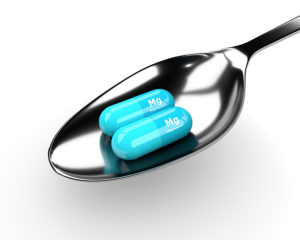
Research begun at MIT by Dr. Inna Slutsky came up with a new magnesium supplement called Magnesium-L-Threonate (MgT). This new magnesium compound easily crosses the blood-brain barrier.[xvii]
This form of magnesium was patented and now produced by MagteinTM Science. Several supplement companies sell magnesium with this branded form of magnesium.
Recommended dose of Magnesium-L-Threonate is up to 1 gram per day to avoid magnesium deficiency.
Chelated magnesium and lab-grown magnesium are suitable alternatives and covered in more detail below.
Magnesium is water-soluble so you don’t need to take it with a meal, or healthy fat.
Magnesium Side Effects
Most forms of magnesium can cause diarrhea, and bloating, and can lower high blood pressure if used in excess. So, be careful if you are using meds to lower blood pressure because using too much magnesium can mess with how this med works.
Magnesium-l-Threonate contains less elemental magnesium per dose and should not cause gastrointestinal upset.
Best type of Magnesium to buy
Magnesium is sold as magnesium aspartate, Bisglycinate, citrate, lactate, oxide, chloride, Taurate, magnesium L-Threonate, pidolate, magnesium citrate, and magnesium sulfate. I suggest avoiding magnesium oxide or citrate for nootropic use because they cannot easily cross the blood-brain barrier.
Depending on the type of magnesium; it comes in capsules, chewable tablets, powder, extended release tablets, or in a liquid solution.
Magnesium oxide is widely available in supermarkets, drug stores and vitamin shops. It’s popular because it’s cheap to manufacture. But it’s not chelated, and your body does not recognize it as a mineral it can readily use.
As an individual supplement, the patented form of magnesium-l-Threonate (MgT) called MagteinTM easily crosses the blood-brain barrier. And is recommended because even in high doses does not cause diarrhea.
Most multivitamins include a small amount of magnesium oxide which is useless as an ingredient.
A far better option is Click for Performance Lab® Magnesium providing 150 mg elemental magnesium. One dose is 3 NutriCaps® Pullulan Capsules with a little Nu-FLOW® Rice Concentrate used as a flow agent.
One of the many benefits of magnesium as a nootropic is in helping you fall asleep and stay asleep. But you need higher doses of magnesium to accomplish this. And I get my extra magnesium from …
Click for Performance Lab® Sleep which contains a combination of magnesium BiGlycinate, magnesium Taurate, and NutriGenesis® magnesium (100 mg). This sleep stack also contains L-Tryptophan (200 mg), CherryPURE® Tart Cherry Concentrate (500 mg), and Lemon Balm Extract (200 mg).
The magnesium in this sleep stack works with L-Tryptophan to help synthesize serotonin which then produces melatonin in your brain. Tart Cherry is a natural source of melatonin. And Lemon Balm helps boost the use of GABA in your brain. I highly recommend this nootropic sleep stack, and you can find my full review here.
Nootropics Expert Recommendation
Magnesium up to 1 gram per day
 I recommend using Magnesium as a nootropic supplement.
I recommend using Magnesium as a nootropic supplement.
Your body does not make Magnesium on its own. So to get its benefits it needs to come from your diet. Or you must take it as a supplement.
Magnesium is especially helpful for boosting memory, learning, recall, mood and cognition.
Magnesium is also particularly useful to help alleviate some of the symptoms of ADHD. And to help restore memory caused by neurodegenerative disease like Alzheimer’s.
While most forms of magnesium are helpful for overall health, most are not very helpful for cognitive health. So choose your magnesium supplement wisely and perhaps even pair with Vitamin D to avoid Vitamin D deficiency.
Magnesium is also useful to help you fall asleep and stay asleep. I recommend my favorite sleep stack Click for Performance Lab® Sleep which has magnesium, L-Tryptophan, CherryPURE® Tart Cherry extract, and Lemon Balm extract.
As an individual nootropic supplement, I recommend magnesium-L-Threonate (MgT). Because MgT has been proven in the lab to easily cross the blood-brain barrier. And to boost cognition.
And if you are counting on getting at least some magnesium from your multivitamin supplement, know that most brands use magnesium oxide which is cheap and not bioavailable.
I use and highly recommend: Click for Performance Lab® Magnesium

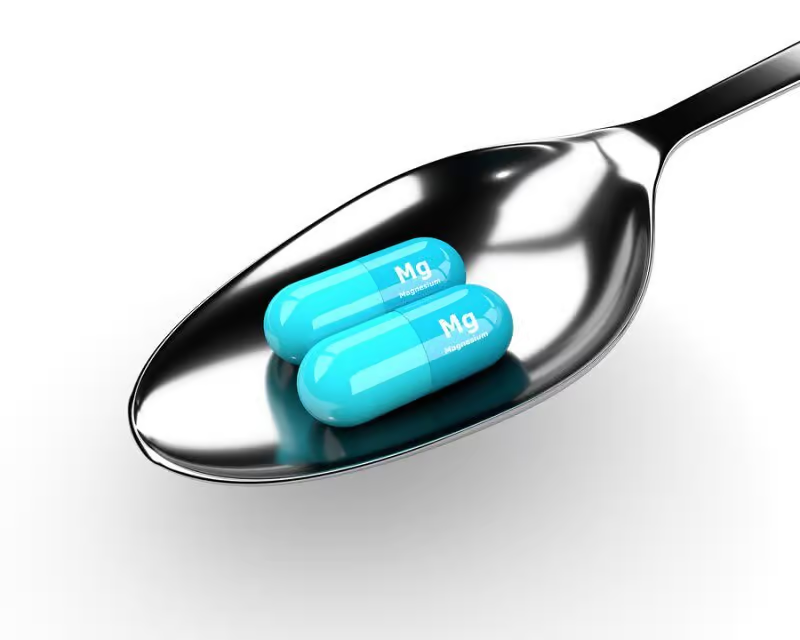
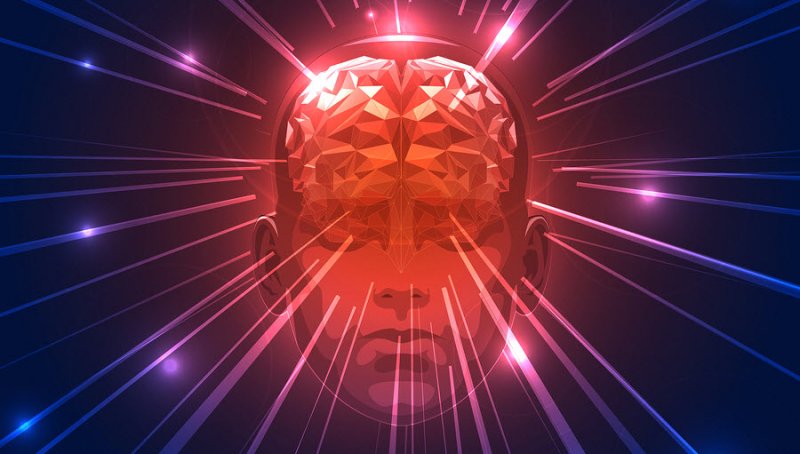





Join The Discussion - 273 comments
George
March 23, 2023
Can magnesium cause dry mouth issue in the morning every time I take it I seem to get a very dry mouth when I wake up! I’ve tried all types does this mean I have too much?
David Tomen
March 28, 2023
George, magnesium oxide or magnesium citrate can cause dehydration which can result in a dry mouth. But I have not heard of this happening when using chelated forms of magnesium such as Magnesium L-Threonate or Magnesium Glycinate.
Sara
February 11, 2023
Hi David!
My sleep is very light after magnesium. Citrate, Glycinate, Taurate, Malate didn’t work.
BUT
Every time I took every form it contained 20mg of P5P in 400mg. Could B6 be the cause? Should I buy magnesium without B6?
David Tomen
February 13, 2023
Sara, there are certainly chelated magnesium supplements that do not contain P-5-P. But is that all you are using for sleep? Have you seen any of my sleep articles?
https://nootropicsexpert.com/best-nootropics-for-sleep/
https://nootropicsexpert.com/best-sleep-supplements-to-buy/
MA.
January 27, 2023
Hi David, after reading the article I have a couple of doubts regarding magnesium. Firstly, if I am not misinformed, magnesium acts on ion channels as a competitive inhibitor of glutamate, favoring a reduction of the amount of glutamate in these receptors and that the ion channels close. My question is, given that synaptic plasticity is favored by the entry of calcium and sodium ions through these channels, couldn’t the inhibitory effect of magnesium be counter productive in promoting this neuro plasticity? I understand that like everything else, the nuance is in the quantities, with both an excess of magnesium and a deficiency being bad. In any case, my doubt, with a more theoretical character, resides in whether, in order to try to promote the synapse process, it would be better to get closer to a magnesium deficiency than an excess.
Secondly, I have doubts about the differences between bisglycenate, citrate and threonate. So far I was consuming a mixture of bisglycenate and citrate having read in other sources that they were the ones with higher bioavailability (exluding threonate) and lower chance of causing diarrhea (mostly thanks to bisglycenate). My question is how big is the difference in efficacy between these forms (bisglycenate and citrate) and threonate; and if bisglycenate and citrate are totally unable to cross the BBB or only able to a lesser extent than threonate?
Thank you very much in advance.
David Tomen
January 27, 2023
It is much more complicated than that MA. See this study for how magnesium works in the brain: https://www.ncbi.nlm.nih.gov/pmc/articles/PMC4142521/
And see this study that demonstrates Magnesium L-Threonate elevated brain levels of magnesium but magnesium-chloride, -citrate, -glycinate, and -gluconate di not. https://www.cell.com/neuron/fulltext/S0896-6273(09)01044-7
Ron Jackson
January 14, 2023
Hi David,
Can you take magnesium threonate with Quillichew or Buspirone? Does magnesium threonate help these medications? Is there a better stack to go with these medications?
Ron
David Tomen
January 18, 2023
Ron, magnesium is safe to take with anything. Your body needs magnesium. I suggest googling each drug and learn how they work in your brain. Then look for supplements that may support how they work. This particularly goes for methylphenidate. But Buspirone is an SSRI as I far as I know. And when using that drug you must avoid anything that increases serotonin. Or you will cause serotonin syndrome which can kill you.
Ron
January 27, 2023
Thank you!
James
December 29, 2022
Hey Dave,
I just got a magnesium supplement which has about 360mg Magnesium Glycinate (equiv 50mg), 625mg Magnesium Citrate (equiv 100mg), and 250mg Magnesium Amino Acid Chelate (equiv 50mg) per tablet.
As your recommendation is up to 1g Magnesium a day, I’m just a little confused as to whether this supplement would be over 1g of Magnesium (360 + 625 + 250), or if it “only counts” for 200mg of Magnesium (because the label says the equiv Magnesium is 50 + 100 + 50mg, for a total equiv Magnesium of 200mg)?
Thanks 🙂
David Tomen
January 13, 2023
James, I’m referring to “elemental” magnesium but I would not be worried about trying to figure out how much is in the supplement you are using. It appears to be a good source of magnesium and as long as you are using it every day you’ll keep your magnesium levels at a safe level. That’s all you need.
Mick
November 25, 2022
Hi David,
Currently I’m taking:
Magnesium L-Threonate 1000 mg
Magnesium Citrate 350 mg
L-Glycine 3000 mg
before bed for sleep and the nervous system.
Do you think there is a point for me to continue taking Magnesium Citrate?
Or Magnesium L-Threonate with L-Glycine will be enough?
David Tomen
November 28, 2022
Mick, Magnesium L-Threonate with L-Glycine is enough.
Mick
November 29, 2022
Thanks for the tip, David!
Aaron
November 10, 2022
Hi David, I tried 200mg of magnesium glycinate last night and was unable to fall asleep. I stacked it with my usual dose of 1mg of melatonin, which always does a great job of putting me to bed within ~1 hr of taking it. So I found it odd that the melatonin effect was completely absent and felt rather stimulated.
I also had the same experience with tryptophan. Took it before bed (without melatonin) and I was up til about 3 or 4 in the morning. My body naturally gets tired around midnight (without melatonin) so I knew something was off that my mind was so stimulated for that long. This happened for two nights until I decided to abandon tryptophan.
Regarding magnesium, I found this blog post ATP Lab – magnesium keeps you awake that says some people have depleted levels of magnesium and experience stimulating effects when supplementing with magnesium. Only after continuing to supplement with magnesium and restoring levels can they then experience the normal relaxing effects of magnesium.
I also read somewhere on a thread (don’t have the link) that magnesium has something to do with serotonin, which for some people can have a stimulating effect. That would make sense as to why I did not experience any calming effects with tryptophan.
What are your thoughts on this? Would you recommend continuing to use magnesium? And could it be that I maybe have an imbalance of serotonin?
David Tomen
November 10, 2022
Aaron, what that article claims makes perfect sense. Most are magnesium deficient. And it takes daily supplementation for a while to build your magnesium to normal, healthy levels.
If you read through the review above and see everything the magnesium does in your body and brain it’s no wonder a deficiency would cause all kinds of problems.
BTW, magnesium is a cofactor in the synthesis of acetylcholine, dopamine, serotonin, and GABA. A cofactor in the synthesis of RNA and DNA, the synthesis of myelin, modulates the function of ion channels, is involved in red blood cell formation, and binds to GABAa receptors just like Ambien and Lunesta. And it’s involved in somewhere around 600 enzymatic reactions in your body and brain.
And serotonin goes on the naturally produce melatonin in your brain. Serotonin must be in balance with dopamine or it also causes huge problems too long to go into here.
Aaron
November 10, 2022
Thanks for your reply, David. As I was writing my initial post this morning I was also dealing with a headache, which was significant to me because I never get headaches unless I’m hungover (lol). So naturally I turned to google and came across this video on a reddit thread (https://www.youtube.com/watch?app=desktop&v=pBxWivhBdpA)
The video says that a magnesium supplement intolerance is also linked to a thiamine deficiency and recommends to supplement thiamine with magnesium as both need to be co-treated. Ironically enough I had also included thiamine in my order of magnesium because I had read online that both combined can help alleviate depression and anxiety, which I do have a history of.
How do you recommend to take thiamine with magnesium? Should they both be consumed together? Day/night? Also, could this magnesium/thiamine deficiency be a root cause for the dopamine/serotonin imbalance?
David Tomen
November 16, 2022
Aaron, most take magnesium before be because it attaches to the GABAa receptor like Ambien does for sleep. And those vitamins work as cofactors in the synthesis of most of your major neurotransmitters. So a deficiency could definitely cause a dopamine and serotonin imbalance or deficiency.
Claudia
October 20, 2022
Hello David,
I’m planning to take Magtein, L-Tryptophan and chamomile (capsule of 350 mg of the flowering tops) together at night to sleep better. Would this be okay?
David Tomen
October 22, 2022
Claudia, it should be OK. Try it and see if it works for you.
Claudia
October 23, 2022
Thank you!